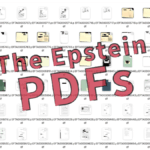PDF Day | Washington DC
This PDF Association event brings industry experts, vendors and managers together to discuss the importance and utility of the Portable Document Format, its various ISO standards and the wide-ranging technology available to government workflows.From: January 29, 2018 0845
To: January 29, 2018 1800
National Archives Building
7 Pennsylvania Ave NW
January 29 2018 is PDF Day in Washington

This PDF Association event brings industry experts, vendors and managers together to discuss the importance and utility of the Portable Document Format, its various ISO standards, and the wide-ranging technologies available to government workflows.
NARA’s new Draft Strategic Guidance targets 2022 as the date on which the federal government’s formal records-keeping agency will no longer accept paper documents.
PDF is the world’s default electronic document technology. With 18 informative sessions across a wide range of topics, PDF Day Washington, DC is thus especially relevant as we look into the future of records-keeping and electronic document technology in and around government.
It’s a do-not-miss event for government and business professionals, managers and executives dealing with document management technology and policy.
Location
PDF Day is hosted by the National Archives and Records Administration’s (NARA), which has generously donated space for the PDF Day at the National Archives Building on Pennsylvania Avenue, in the heart of the nation’s capital. Attendees should use the Special Events entrance on Constitution Avenue at 7th Street, NW.
Registration
PDF Day DC is sold out! Sessions on Section 508 Management, Archiving and PDF Accessibility will be streamed live by the National Archives. All sessions will be posted on pdfa.org within a few weeks. Sign up for our newsletter to learn more.
Educational Program
All educational sessions are strictly reviewed by a Program Committee, and will not include vendor “pitches”.
There are no booths, and there is no trade-show. Event sponsors may showcase their commercial offerings via 4-minute presentations in “Relevant products” sessions as indicated. Gold sponsors have tables at which they may offer demos, or other content or materials.
All educational sessions will be recorded. The PDF Association retains the right to post any such video for public access.
Welcome

PDF Day Washington DC will begin with opening remarks from the Archivist of the United States (AOTUS), David S. Ferriero.
David S. Ferriero was confirmed as 10th Archivist of the United States on November 6, 2009. Early in 2010 he committed the National Archives and Records Administration to the principles of Open Government—transparency, participation, and collaboration.
Previously, Mr. Ferriero served as the Andrew W. Mellon Director of the New York Public Libraries (NYPL). He was part of the leadership team responsible for integrating the four research libraries and 87 branch libraries into one seamless service for users, creating the largest public library system in the United States and one of the largest research libraries in the world.
Before joining the NYPL in 2004, Mr. Ferriero served in top positions at two of the nation’s major academic libraries, the Massachusetts Institute of Technology in Cambridge, MA, and Duke University in Durham, NC. In those positions, he led major initiatives including the expansion of facilities, the adoption of digital technologies, and a reengineering of printing and publications.
Electronic document workflows
 Artificial Intelligence and PDF document processing
Artificial Intelligence and PDF document processing
Session Description: Tesla makes self-driving cars, Amazon can predict what you are interested in purchasing, Starbucks now even knows what your coffee order will be when you walk into their store, all possible due to artificial intelligence technology.
Artificial intelligence software can automate your PDF document workflows, review and validate PDF document contents, and perform automatic data entry using virtual employee software bots to provide “lights out processing” for the majority of your documents.
This session is focused on educating you on what is currently possible with state-of-the-art artificial intelligence software and how correct application of such provides quantum leaps in efficiency, and 24x7x365 lights out PDF document processing. Any system, any document and any workflow can be easily automated, and doesn’t require data scientist expertise to accomplish.
Presenter: Henry Sal, Computing System Innovations
Henry Sal is the president of Computing System Innovations. His software development career spans 40 years, 30 of which have been at CSI. The past 15 of those have been spent making CSI into one of America’s leading redaction software vendors, with the last 3 years spent leading CSI’s transition to state-of-the-art artificial intelligence for document classification, data extraction, FOIA and redaction. Software the CSI team invented has processed over 7 billion pages of unstructured data. Mr. Sal has been a guest speaker at the Association for Information and Image Management (AIIM), the National Center for State Courts (NCSC), the Property Records Industry Association (PRIA).
 Everything you want to know about eSignatures & Digital Signatures in PDF
Everything you want to know about eSignatures & Digital Signatures in PDF
Session description: What is an eSignature? What is a Digital Signature? Will they hold up in court? In this session, Jonathan will run through the current state of the different types of signatures possible in PDFs and their legality.
Presenter: Jonathan Rhyne, PSPDFKit
Jonathan is the COO and co-founder of PSPDFKit GmbH, a company focused on increasing productivity around the globe by providing robust PDF solutions to companies and end-users. He handles everything from project management, sales, marketing, HR to managing the finances and legal affairs of the company. Prior to founding PSPDFKit, Jonathan practiced at a well respected law firm in the US, guiding software companies in the mobile software industry through the proverbial jungle of their business and legal needs. Outside of work, you can find him spending time with his wife and two young kids, playing soccer, or taking photos.
 How blockchain could revolutionize documents
How blockchain could revolutionize documents
Session Description: For almost 25 years, many different companies have joined forces to establish a paperless world. When we look at the adoption of standards such as ZUGFeRD in more and more countries, when we see that NARA will stop accepting non-electronic records in 2022, when we hear that digitization is a #1 priority for many governments, we know that the “dematerialization of paper” is progressing fast.
However, when we look around, we also see signs of the “dematerialization of documents.” Many transactions don’t require documents anymore: people use an app to check into a flight, to order food, even to process payments. Underneath it all, blockchain will emerge as the underlying technology to keep track of all these transactions without involving a central authority. Blockchain is a form of Distributed Ledger Technology (DLT), a distributed database that serves as an irreversible and incorruptible repository for permanent records.
In this session, we will highlight the benefits of combining the qualities of PDF with Distributed Ledger Technology. Learn how this combination caters to many new and innovative use cases
Presenter: George Allen, iText
George Allen is the Director of Sales for the Americas with iText. He is passionate about PDF technology and finding ways to automate daily tasks to save time and money. When he is not out selling the benefits of iText, you can find George spending time with his family.
Section 508 for documents
 Section 508 for managers
Section 508 for managers
Session description: This session examines the workflow issues for government publishers, gives best practices and explains blending accessibility with cross-media publishing for a full overview of how to get accessibility throughout all forms of publishing.
Presenter: Bevi Chagnon, PubCom
Bevi Chagnon heads up PubCom, one of Washington’s leading consultancies for government publishing in cross-media — print, web, digital, Acrobat PDF, and accessibility. Many in government know her from classes at the US Government Publishing Office where she’s a senior instructor for digital media and accessibility.
Chagnon specializes in helping government publishers streamline their workflows and incorporate accessibility across their media. Through her firm, she provides training, consulting, development, accessibility remediation services, and accessible templates for Word, PowerPoint, and Adobe InDesign.
She knows first-hand that accessible documents are possible without the need for agencies to incur immense budgets or labor to meet Sec. 508 requirements. It’s “doable” with targeting training, easy-to-use templates, and workflow management.
Bevi Chagnon is a member of several professional publishing-related associations, including the PDF Association.
 Successful implementation strategies for government wide PDF accessibility
Successful implementation strategies for government wide PDF accessibility
Session Description: A detailed examination of how the Provincial Government of Ontario has implemented a cross-Ministry approach to ensuring all digital communications are accessible and compliant with PDF/UA. This will explore not only the challenges that were encountered, but also the successes historically, currently and the direction they’re heading in the future.
Presenter: Adam Spencer, Accessibil-IT
Adam Spencer is the Head of Accessibility Services for Accessibil-IT Inc, the global leader in PDF accessibility services. As an active member on a number of ISO Committees for PDF and PDF Accessibility, as well as the Canadian Vice-Chair of the Standards Council of Canada for PDF related technologies. Adam continues to be an active contributor to the development of the new international standards known as PDF/UA to ensure the accessibility and usability of PDF and adaptive technologies.
 Planning for PDF accessibility within your organization
Planning for PDF accessibility within your organization
Session description: In this session we will discuss what PDF accessibility is, what’s driving the need, and what regulations and standards are applicable. We’ll also propose a multi-phase plan to help your organization achieve document accessibility, identify some tools that may be helpful in your efforts, and offer tips and suggestions for success.
Presenter: Paul Rayius, Commonlook
As CommonLook’s Accessibility Training Manager, since 2013 Paul Rayius has worked with a variety of health care organizations, local, state, and federal government agencies, financial institutions, colleges and universities, and more, to assist them in meeting their PDF accessibility needs. In addition to his expertise with the CommonLook suite of tools for testing, creating, and remediating PDFs, Mr. Rayius is also well versed in accessibility standards including Section 508 (including the recent “refresh”), Health and Human Services (HHS), WCAG 2.0 and PDF/UA.
Output
 Leveraging PDF 2.0 for High Volume Invoices, Statements and other Personalized Communication
Leveraging PDF 2.0 for High Volume Invoices, Statements and other Personalized Communication
Session description: While PDF is widely recognized as a critical content format for publishing, office, marketing and other forms of low volume and impersonal content, PDF plays an essential role in high value, high volume personalized content generation and distribution. This presentation discusses applications and benefits of PDF 2.0 in transactional content workflows, including accessible and secure delivery.
Presenter: Drew Sprague, Solimar Systems
Drew Sprague is President of Solimar Systems, Inc., a leading global provider of production printing and electronic document delivery solutions. A co-founder of the company, Mr. Sprague has nearly 30 years of experience in designing and developing innovative output management solutions. Mr. Sprague holds a Bachelor’s degree in Mechanical Engineering from Northwestern University.
 Managing the transition: Legacy Advanced Function Presentation (AFP) to PDF/UA
Managing the transition: Legacy Advanced Function Presentation (AFP) to PDF/UA
Session description: When considering Accessibility and legacy documents, do you start from scratch or do you work with what you’ve got to migrate?
In this presentation Compart’s VP of Technology John Lynch examines the transition from a trusted legacy print stream (AFP) when planning your accessibility migration. He discusses the gaps in AFP, the strategy to fill the gaps by the AFP Consortium, and how agencies, service-providers and companies others can manage the transition while vendors work to implement the standards.
Presenter: John Lynch, Compart
Since 1984 John Lynch has been involved with high-speed production print and the management of documents. He has been on both the customer and vendor sides of the industry. He holds 5 U.S. Patents and has worked with companies and government agencies facilitating the production of documents. He currently is the Vice President of Technology for Compart North America, Inc. Compart is a leading global provider of Multi-Channel Document Management Solutions. Headquartered in Germany, with subsidiaries throughout Europe and America, Compart has been a member of the PDF Association since 2006.
 Collecting business intelligence on your documents
Collecting business intelligence on your documents
Session Description: Do you ever wonder what happens to your documents after you share them, who is reading what, how long are they spending on pages, what is being edited? And if you don’t see something right, wouldn’t it be great to make it self-destruct? Welcome to the new world of collaboration.
Presenter: Dan Morris, Foxit
Dan is a technology solutions expert, a designer, and a musician. He has worked in fields ranging from geographic information systems to web development to mobile marketing. Dan has designed solutions on multimillion dollar projects for companies such as Fidelity, Microsoft and P&G.
PDF in engineering
Secure Collaboration on Engineering Documents
Session description: As PDFs move from the desktop to the job site, stakeholders throughout AEC organizations need to work together securely. In this session, you will get actionable tips for using the latest PDF collaboration tools to lower costs, strengthen security, reduce risk, and shorten timelines.
Presenter: Aaron Gravesdale, PDFTron
Aaron Gravesdale is a Solution Engineer for PDFTron Systems, Inc. He has total of 15 years’ experience developing and architecting solutions in document management and PDF technologies. Aaron has worked directly with a multitude of customers to design solutions within the unique constraints of engineering sectors..
Use of 3D Technical Data for Sustainment: DLA 3D PDF Operational Demonstration
This presentation will describe Defense Logistics Agency’s recent operational pilot to test the use of 3D data in procurement of legacy weapon system parts.
The Defense Logistics Agency (DLA) is America’s combat logistics support agency, responsible for buying spare parts for more than 2000 weapon systems used by our military. Most of those weapon systems were designed decades ago, and the technical data used to design and build them was two-dimensional (2D) drawings. DLA still uses that old 2D technical data to buy parts for these legacy systems.
However, the state of the art today is to build parts using three-dimensional (3D) models. It’s the way new weapon systems are designed and manufactured. In fact, much of the manufacturing in the private sector is accomplished by small specialized firms that expect to receive 3D models from their clients. In the case of DLA, some manufacturers choose not to bid on parts without 3D models, while others convert DLA’s 2D drawings into 3D models to drive their machines.
Presenters: Mr. Tom Parks, LMI Senior Fellow and Mr. Dick Tiano, ATI Senior Program Manager
Mr. Parks is a senior fellow at LMI assigned to the Acquisition and Product Support business unit. He has more than 44 years of experience supporting senior leaders of the Office of the Secretary of Defense, Department of the Navy, Department of the Air Force, Department of the Army, U.S. Coast Guard (USCG), U.S. Customs and Border Protection (CBP), Defense Logistics Agency (DLA), Federal Aviation Administration (FAA), Strategic Defense Initiative Office, and Ballistic Missile Defense Organization, in logistics analysis, system development, technology assessment, and maintenance planning. He is a retired US Navy submarine officer (nuclear power) and a Project Management Professional.
 Archiving Engineering Documents using PDF
Archiving Engineering Documents using PDF
Session Description: PDF is the most popular format for sharing engineering documents. Join us to explore the various PDF standards (PDF, PDF/A, PDF/E) and how they can be applied to archive engineering data.
Presenter: Phil Spreier, 3D PDF Consortium
Phil is an expert in 3D PDF and is chairman of the US TAG for ISO TC 171/SC 2. Phil also project leader for ISO 21757 (ECMAScript for PDF 2.0 – Part 1: Core PDF Support) and ISO 21757-2 (ECMAScript for PDF 2.0 – Part 2: Extensions for use in 3D annotations).
Phil is an Adobe Certified Expert for the Acrobat software and is a frequent speaker regarding 3D PDF at industry events. He is also the founder and President of Dimension PDF, a software developer of plug-ins for publishing 3D PDF documents from Autodesk AutoCAD models.
Archiving
 A brief introduction to archiving information with PDF
A brief introduction to archiving information with PDF
Session description: Learn about what makes PDF the ideal document format for long-term information preservation, including best practices for creating archival documents, and how PDF is used to facilitate reliable information interchange and helps ensure future usability.
Presenter: Matt Kuznicki, Datalogics and Chairman of the PDF Association
Matt Kuznicki is the CTO of Datalogics and the Chairman of the PDF Association. He serves as a recognized expert in document applications, eBooks, electronic documents, and the PDF file format, and is active in the PDF standards and technical communities.




